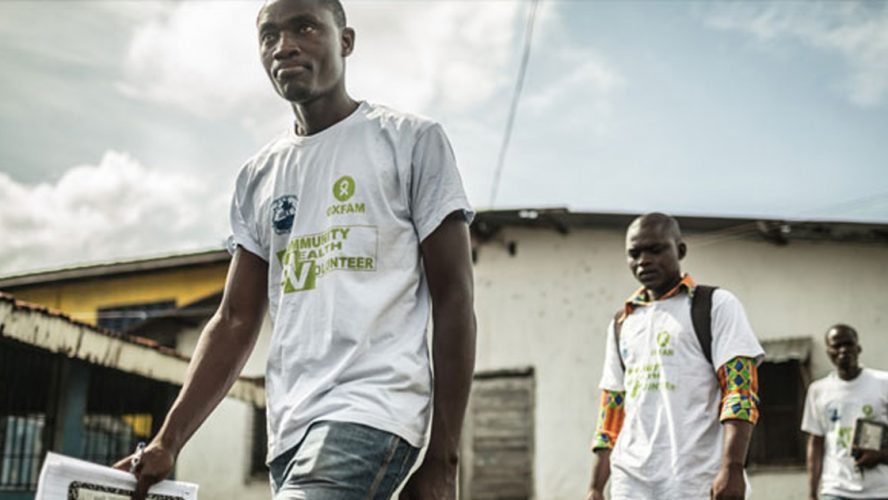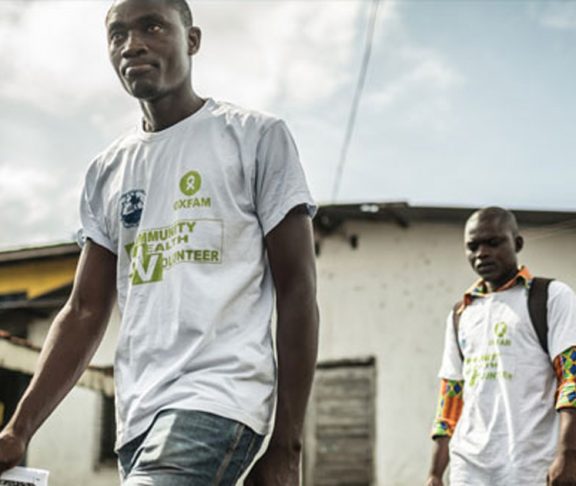Images of body-bagged victims, health professionals in protective suits and communities gripped with fear, have come to epitomise the current Ebola crisis.
In countries like Liberia, public information campaigns have helped to calm the initial panic, but life is far from normal with schools closed, people unable to get to work, healthcare disrupted and the constant threat of a killer in the midst.
“No doubt the world has been slow to respond,” says Marion O’Reilly, Oxfam’s head of Public Health Promotion, who’s just returned from West Africa. “It’s taken us by surprise because other outbreaks have been in rural areas where medical organisations, working with local health authorities, have been able to close them down quickly.”
The latest outbreak started in Guinea but, unlike previous cases, it spread across borders into urban areas where dense populations and poor health care exacerbated the problem. With no cure, patients are isolated to stop infection spreading and given fluids and pain relief to try to keep them comfortable.
Community action
However, according to O’Reilly, the key to tackling Ebola doesn’t just lie with medical professionals. “There is still a need for more treatment centres,” she says, “But people have to be willing to use them. Early on there was such a lot of fear and misunderstanding. We need trusted members of the community and local authorities to help people act to reduce the chance of their communities getting infected.”
Oxfam is helping to make this happen by providing information on how to prevent infection and what to do if someone catches the virus. Door-to-door visits by community health workers and radio adverts are backed up with the distribution of hygiene kits, including soap and bleach.
On the ground, O’Reilly has seen communities tackling Ebola head on. “In Liberia, one of our staff was telling me how his neighbours made their own task force,” she says. “When someone got Ebola he led his community in planning how to stop the infection spreading. I’ve also heard of people who’ve survived going back to treatment centres to help out any way they can.”
In addition to the tragic human cost, the World Bank estimates the economic cost of Ebola to West Africa could be as high as $32.6bn (£20.2bn) by the end of 2015. It’s clear that the full extent of the crisis is yet to be seen and O’Reilly warns, “we can’t hold back on the efforts.”
Ebola Facts
- Ebola virus disease (EVD) first appeared in 1976 in two simultaneous outbreaks, in Sudan, and Democratic Republic of Congo.
- There have been more cases and deaths in this outbreak of Ebola than all other outbreaks combined.
- The most severely affected countries are Guinea, Sierra Leone and Liberia.
- Ebola spreads through human-to-human transmission via direct contact with the blood, secretions, organs or other bodily fluids of infected people, and with surfaces such as bedding and clothing contaminated with these fluids.
Facts source: World Health Organization

